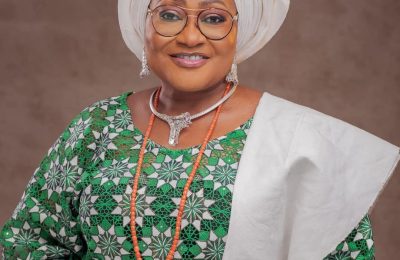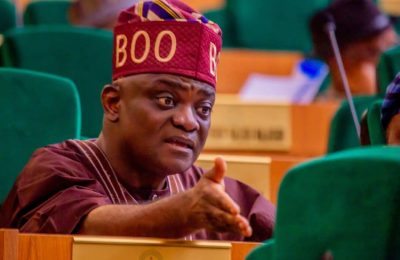In this interview with IFEDAYO OGUNYEMI, the Professor of Political Institutions, Governance and Public Policy in the Department of Political Science, University of Ibadan, Remi Aiyede, on the issues surrounding the minimum wage negotiation between the government, private sector and organised labour.
IN negotiation, a national minimum wage affects states, local governments and private sector employers, especially SMEs and MSMEs. Should the first consideration in wage negotiation be affordability and ability to pay?

That’s not the first consideration. Who determines what is affordable and available? What we should all be concerned about is the fact that it is a social policy. Every government recognises that certain levels of wages can be accepted as dignifying of its workers. Every social policy emerges out of what we call social citizenship such that citizens who are members of our social community are entitled to a minimum measure of dignified living and work. It is believed that if people can spend their full time doing work, there should be a minimum amount of money that should be sufficient for them to survive with dignity; that’s the idea of minimum wage. After that, you can then talk about policy considerations. For instance, you don’t want to put a minimum wage that would make it impossible for private sector organisations to make profits or to live above board. That’s the second dimension. The first dimension is to say what amount of money is required to survive in contemporary Nigerian society so that you don’t have people working in your organisation who can’t do their job well, because they are hungry or their pay can’t take them home. You also don’t want to have workers who are unhappy because other things can happen; it can lead to soldiering, inefficiency, disloyalty, and so many other things. There are so many other reasons why it is rational to provide a minimum wage in every society. That is why, across the world, it is promoted by the International Labour Organisation, the labour unions and other people who are interested in running an effective government in which citizens can identify with their government.
There is a consensus that the minimum wage should increase. The governors have proposed N60,000, a 100% increase when compared to the last one. Would you say that is enough considering the Nigerian situation?
Look at the market today. Have prices gone up threefold? Because we’re not setting the minimum wage for the first time, there are certain benchmarks that the government is supposed to use in making the decision. The minimum wage law that brought about the wage you referred to already expired in April. A very responsible, caring and committed government would have worked out a new minimum wage even before the expiration of the last one. First and foremost, the government has not proven itself to be very responsive, and caring. Two, they are not looking at the minimum wage in terms of the cost of living. They are just talking to us about affordability. We are not also convinced that they cannot afford something higher than N60,000 because of the reputation they have for spendthrifts. Look at the amount of money they’ve expended on travels alone, in support of Hajj and the students. All of these show that this government has mistaken its priority.
Some even said it would lead to inflation. How can that new minimum wage lead to inflation when what you’re paying is just barely enough for survival? Go to public schools and look at a lot of public sector workers, many of them look very lean and emaciated. It is only a few that can access legal money and some who feed on corruption that are living large. A team of senior civil servants recently told the government that their pay cannot take them home. In Nigeria today, what can N60,000 buy for a family that has kids in school? For instance, based on the N60,000 proposed minimum wage, if a man and his wife earn N150,000 and they have a kid in school, what percentage of that income can pay the monthly rent and feeding? Go to any local restaurant, check the cost of a decent meal and check the cost implication for three meals a day for three people. What will N60,000 salary buy for a family that will lead to inflation? These are people who have tightened their belts. There are many people in Nigeria who now only eat once a day. So, what kind of service is he/she going to render? I think the debate has veered off from the reality of Nigeria. The public officials are the ones in charge of the resources and I think they are just about the money they want to corner. That is why they are telling us that a higher wage is not affordable.
Is the N250,000 proposed by organised labour enough to qualify as a living wage?
The labour is talking about living wage but I’m talking about survival wage. I think if the federal government cannot afford a living wage, it should be able to afford a survival wage because anything below the survival wage will be excessive exploitation, abuse of workers, and it will mean living below the poverty line. No government should promote a minimum wage that will put people into poverty. The labour organisation, understandably, is talking about the living wage because they cannot go to their workers and say we are only promoting wages that will only enable you to survive. They have to promote wages that will make their members live well. It is the realm of the government to tell us what is a survival wage, looking at the Consumer Price Index if at all they cannot afford a living wage. Any government that proposes a minimum wage that is below survival wage cannot be responsible. And I think N60,000 is below survival level and that is where the problem is.
In your estimation, what will you say can be the survival wage today?
I don’t have to, because the indications are there. The ILO has done a country-by-country classification of factors that should be used to determine a minimum wage. In many developed countries, they talk about wages in terms of hours. The minimum wage in the UK used to be £12 before it was increased a few months ago. How much does our wage translate to per hour of work? Let’s see how well that can even cater for a proper meal in a local restaurant. I am not even talking about the big ones. The point I am making is that minimum wage is not something that is set arbitrarily. There are bases for calculating it and the calculation should at least be on what an individual requires to survive. I’m not even talking about what an individual requires to live well, which is what the labour is basing its calculation on. It is something that is based on the reality of life in our society today and that basis is the consumer price index.
The FG recently threatened labour that if a higher wage is implemented, it will lead to job loss. Do you agree with this position?
It is just a threat. Who determines if the wage is higher? If the government can bring the figures to the public space, we can understand what they are talking about. Where are the indicators? If a governor says he is only able to pay N5, do we agree and take it just like that? That was how they got away with not paying N18,000 for many years but they can spend money recklessly. Some governors donated millions across the country during the election campaign. The politicians are just taking advantage of people’s ignorance of some of these things. They are distracting us with things that don’t matter. Recently, the governors in the South-West met but didn’t focus on fundamental issues like infrastructure but they were talking about the regional anthem. Tell me what that means for hungry people. Another thing is why will the minimum wage be implemented pro rata across the civil service. The way wages and salaries are being adjusted is very bad for the country. It only promotes inequality because the increase is only implemented at a percentage which means the higher you are, the more money you get. For many years, those at the top earn three or four-fold what those at the bottom earn. That inequality is too high and that is why people cut corners because they are desperate to get to that position. But if you reduce the gap between the top and the bottom, then we will have a much more egalitarian society. I don’t know why this issue of inequality has not been raised concerning wages. For instance, a university professor earns around N500,000, but an assistant lecturer barely earns N100,000 and they work in the same organisation. Why should the differential be so high? We have so many issues around these wages thing that should have been addressed, but because we have very irresponsible politicians determining the wages and the labour are not systematic and consistent in their negotiations, we don’t have a very good system. Now and then we are confronted with strikes over minimum wage. The minimum wage is supposed to be done automatically, according to changes in consumer pricing and inflation. That’s what they do elsewhere. It is not something that we should embark on strike for while debating and arguing over it every day. Wage adjustment has to be organised and systematic, such that each time things change, it is automatically adjusted. Until we get to that point, we’re going to continue in fits and start over this wage issue and it is not healthy for anybody.
Would you say the government is fuelling the country’s economic woes by expanding the cost of governance?
The government is daily initiating policies that will lead to belt-tightening among the people but the government is not tightening its belt. They are even more spendthrift than way back when the country was buoyant; look at the vehicles they gave to the legislators and the increment in the remuneration of the judiciary, especially judges. Are they more citizens than the rest of the workers? I think that the current administration is not very fair to all parties. It is fuelling division within society while also embarking on a spendthrift. It is as if it is trying to silence those who are more vociferous than those who have no voice than to depend on their unions.
Anytime the issue of wages is being discussed, there is one issue that comes to the fore regarding how such wage increase translates to an increase in revenue for the government. With the wage increase, what can be done to increase government revenue?
As you know, the government has been doing everything in its power to increase revenue; taxes have gone up and they are doing everything they can to bring everybody into the tax dragnet. And you know this is one of the reasons many companies are exiting Nigeria such that the government is now providing them with tax holidays and exemptions. The allocation to states post-subsidy has increased. What have been the consequences of that in terms of welfare for the citizens? Instead, we are being inundated with corruption, wastage and poor government planning. What kind of broke government is undertaking a Lagos-Calabar coastal road without resources?
Would you advise the government to declare an emergency on agriculture to bring in more revenue?
What emergency? The problem of insecurity is there. The government needs to support the farmers with inputs and diversify the economy. These are issues that we have been talking about for decades. It is not as if the issues are not clear to the government but it appears most of these people in government are more interested in how to rake in money for their campaigns and elections. We also have issues of capital flight where they steal public money and ferry it abroad. Look at how busy the EFCC is now. How can someone say they mistakenly transferred 40 billion? How can you allow all of these things to happen and they are telling us to tighten our belts? They are telling us they cannot afford to appropriate survival wage for ordinary Nigerians. I think one of the reasons why they get away with all of these things is because we are divided often along ethnic lines. We do not see ourselves as common citizens at various levels because already even at the state level, we not only have division between settlers and indigene, we also have those who come from where the governor is, and those who are from the other side of the state. Because of these divisions, they continue to exploit us and do whatever they like without the citizens being able to organise ourselves and speak with one voice demanding accountability. It is the complexity and diversity of our society that make us vulnerable to divide and rule strategy that allows them get away with these things. Otherwise, if we are a very enlightened society that is organised, they wouldn’t do all these things and we would call them to account. We will ask them to show us the budget of each state government and indicate how much they’re paying as salaries and wages with documents to show for it. It is then that we can ascertain exactly the true status of each state and see whether they can afford something or not unlike now when only the governor is the one speaking for the state. Why not the commissioner for planning or finance? Whoever is speaking should tell us the indices that made them reach that conclusion but we are in a society where there is more propaganda and manipulation than proper management and governance.
ALSO READ: Eid-el-Kabir: Your sacrifices will not be in vain, Tinubu tells Nigerians







